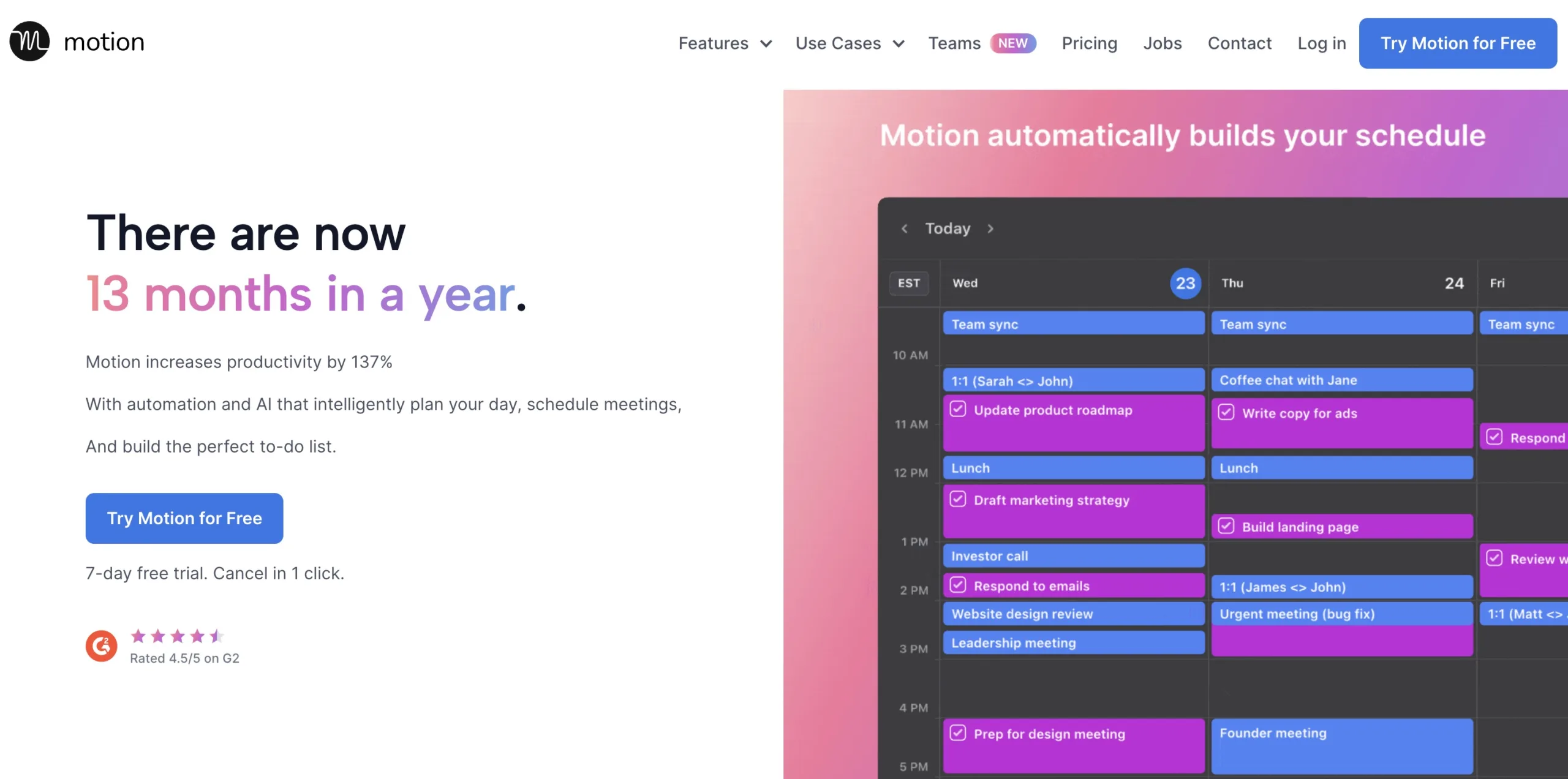20 Inspiring Personal vs Professional Goals Examples to Jot Down ASAP
This post contains affiliate links and I may receive a small commission (at no extra cost to you) if you sign up or purchase products or services mentioned. Read the full disclosure here.
Last Updated on October 19, 2023
Looking for the best personal vs. professional goals to level up your success? Here’s the difference between them and how to approach them the right way
Are you ambitious but just need more direction? Do you simply not know where to start? Don’t fret, these examples of inspiring personal vs. professional goals will give you the guidance you’re looking for.
Depending on what stage you’re at in your life or in your career path, the context of your goals may vary. That’s okay!
These examples are meant to teach you how to structure your goals in a way that works for your path and your timeline.
But one thing’s clear: goals are necessary because you need to feel like you’re working toward something. Not working for the sake of working.
This rings true for both your personal AND professional goals. I’ll explain the difference between them in this post.
You will feel demotivated real quick if you don’t have clear goals set in place.
Knowing how to set goals correctly, and one’s that you’ll actually stick to, are paramount for your success.
This post is all about personal vs. professional goals.
What’s the difference between personal and professional goals?
When differentiating between personal vs professional goals, think of personal goals as looking inward to what’s valuable to you personally, and professional goals as a more outward metric of progress.
Professional goals are often associated with your career and education, while personal goals are more tied to self growth, mental health, wellbeing, happiness, and relationships.
Personal goals encompass pretty much anything that’s important to you in your personal life, while professional goals are “strictly business!” However, in some ways, there may be some overlap.
For example, if one of your personal goals is to obtain a consistent sleep schedule, there’s no doubt that this will positively impact your energy levels and alertness during the work day. So feel free to think of how you may want to structure some of your personal goals to benefit your professional life while you’re at it!
What exactly are personal goals?
Thinking specifically about personal goals alone, these tend to be personally meaningful and potentially even emotional to you. A personal goal can be something related to your physical health, like aiming to lose 20 pounds. They could be related to your mental health, like seeking to lessen your anxiety symptoms.
The biggest roadblock to sticking to personal goals is that they require a fair amount of self-discipline. Unlike a professional goal, like working toward a job promotion, it’s kindaaaa all on you to hold yourself accountable! No one else is monitoring your progress or relying on you to hit the goal. So staying consistent and disciplined in your journey to achieve the goal is of utmost importance, arguably even more so than when you chase a professional goal.
What exactly are professional goals?
Professional goals can help you work toward achieving your version of success in your life at work or school. You’ll often see examples like completing a degree or moving on to a higher-up position in a job. Or even starting your own business!
The timetable for professional goals is often a little more structured, for example, completing your bachelor’s degree in a standard 4 years. Or, you may have a job that expects you to move up in the company after a certain period of time.
Professional goals are important, but it’s important to evaluate if the professional goals you’re setting are something you’re truly fired up or passionate about. With so much of our lives spent working, it’s pretty darn crucial that you’re working toward something you enjoy and feel motivated to accomplish!
So if “the next logical step” is to be promoted but you’re having second thoughts about your line of work, you may want to reconsider creating a goal around a different career field rather than feeling obligated to do what’s expected of you.
How to Identify Personal vs. Professional Goals in a S.M.A.R.T Way
You may have heard of the acronym “SMART” when it comes to goal-setting.
“SMART” stands for specific, measurable, attainable, realistic, and time-bound. This is a good formula for structuring your personal vs professional goals in a way that sets up concrete, executable steps for each goal.
For example, instead of just “eat healthier,” I’m going to give myself specific guidelines for what “eating healthier” means.
Instead, I’ll say “eat 3 servings of vegetables a day, only buy fast food once a week, and prioritize home cooked meals.”
If I just left my goal at “eat healthier,” I’d be more likely to justify the choices I make that aren’t in line with my goal. It won’t give me the structure I need.
Clarity and specificity is everything here!
Setting goals can be a challenge. Want to set goals you’ll actually stick to, using the S.M.A.R.T method? Get my (free!) printable goal planner sent straight to your inbox!
How to Write a Personal vs. Professional Goals List
I like making visual charts to make the goal-setting process more fun. You can keep your goals in a digital spreadsheet or draw/write them out in a notebook.
This is an example of how my professional goals look like:
As you can see, I’ve put together short-term, mid-term, and long-term goals for my blog and business. I also included a “master to do list” for smaller goals and things I’d like to get done that are less of milestones and more so tasks.
It’s a good idea to create the master to-do list first and then go ahead and sort what makes sense to categorize on the short/mid/long term goals page!
Notice how I include specific and measurable goals, like dollar amounts and statistics. Super important!
(I could still go one step further and specify how I will do things like pitch to brands, how often, etc.)
Now let’s get you started on some personal vs. professional goals examples!
Personal Goals Examples
1. Improve your emotional intelligence
What does emotional intelligence look like?
- Well-developed social skills
- Strong sense of self-awareness
- Consistent motivation
- Ability to self-regulate
- Abundant empathy
Emotional intelligence is an important skill to have to thrive in your interpersonal relationships.
A S.M.A.R.T goal to set to achieve this:
“I will improve my emotional intelligence by prioritizing listening to others, becoming less reactive, and making an effort to truly understand where people are coming from when they have a differing view point.”
Do you see how I pinpointed THREE SPECIFIC things we can do to work toward emotional intelligence? This is key!
2. Be more outgoing
If you’re naturally shy or struggle with social anxiety, you know just how hard this is. Easier said than done!
But you can take baby steps. Start with small things, like being the first one to say “hi” in a new social situation. Be the first one to text back after hanging out with a new friend.
A S.M.A.R.T goal to set to achieve this:
“I will be more outgoing by being the first to say hi to at least one peer in each class at my new school and make a habit of giving someone a compliment to break silence.”
3. Learn one new thing every week
Take some time to write down some topics you’re interested in but wish you knew more about. This could be science, health, the arts, stocks…anything!
You don’t have to dedicate a lot of time to learning something new, but finding a few articles to read each week about a topic is a great place to start.
A S.M.A.R.T goal to set to achieve this:
“I will learn one new thing every week by choosing an interesting topic and finding three articles to thoroughly read about that topic every Saturday.”
Setting a specific DAY in which you will work on your goal will also go a long way in helping you find the time and stick to it.
4. Keep a regular journal
Keeping a regular journal simply to record events in your life or to take time to self-reflect is an extremely good tool for your personal development.
Whenever I look back on my journal entries throughout the years, I can SEE my self growth right there in front of me.
If you’re not used to journaling, check out these journal prompts for self-discovery to help get you started!
Psst…picking out a cute journal below will also help you feel motivated to write in one 😉
A S.M.A.R.T goal to set to achieve this:
“I will keep a regular journal by making it a habit of my weekend routine, where I will spend 20 minutes every Sunday night writing to reflect on where I’m at emotionally or in my life each week.”
5. Work toward a growth mindset
Having a growth mindset means believing that change and mental growth continues to happen throughout your life.
It’s the belief that you can always work toward achieving new skills, abilities, and knowledge.
People with growth mindsets are always striving to better themselves and achieve new goals.
A S.M.A.R.T goal to set to achieve this:
“I will work toward a growth mindset by changing any limiting beliefs I may have, reaching my fullest potential in the areas of life I care about most, and always giving myself something to work for.”
6. Take life less seriously
It can be hard not to stress over your every move and every human interaction, but take a step back. Think about the bigger picture.
How many of the embarrassing things you did 3 years ago matter now?
And how many of the things you stressed over 3 years ago matter now?
Oftentimes, not many.
A S.M.A.R.T goal to set to achieve this:
“I will take life less seriously by distancing myself from the mindset of overthinking every interaction. I will think of the bigger picture and about what really matters in times of short-term stressful events.”
Another goal that is WAY easier said than done! I know! But the first step is to be aware of the mindset change that needs to take place.
7. Engage in regular self-care
Tending to your emotional and physical needs, whether it be through calm morning routines or skincare routines, is so helpful for our wellbeing.
Make self-care a part of your routine in any way that feels best for you! This can be through meditation, a warm bath, or any self-soothing activity.
A S.M.A.R.T goal to set to achieve this:
“I will engage in regular self-care by meditating every morning for 10 minutes, taking a bubble bath every Monday night, and signing up for therapy sessions once a week.”
8. Evaluate toxic people and let them go
Do you have a so-called “friend” in your life that brings more negativity than positivity? Maybe someone that’s taking advantage of you?
Cut. Them. Out! Like yesterday!
I’ve had friends that I’d kept for far too long just for the sake of the longevity we’ve had together. Regardless of the fact that they were regularly saying hurtful things to me, not being there for me, and just simply not being a good friend.
Once I built up the courage to cut them off, it REALLY felt like a weight was being lifted off me. Absolutely no regrets!
A S.M.A.R.T goal to set to achieve this:
“I will evaluate toxic people by considering which friends keep bringing me down and which friends I find myself unsatisfied with. I will let them go by explaining to them that I no longer want to be friends and deleting their number.”
Adjust this in whatever way makes sense for the friendship. I’ve had friends that I blocked with no further explanation after a big fight and I’ve had friends that I let know how they hurt me.
9. Stop procrastinating
Procrastination can feel like such an enemy! Even harder is learning how to truly stop procrastinating FOR GOOD.
It takes a mindset change as well as a change in your actions.
A S.M.A.R.T goal to set to achieve this:
“I will stop procrastinating by consciously deciding not to give into distractions, working on small tasks first and big tasks last, and stop my multitasking.”
10. Improve your money saving skills
First of all, what helps big time is tracking your expenses by using a monthly budget spreadsheet. This way, you can get an idea of where your money is going and the areas you can improve in.
After you get a sense of where your money goes, determine ways in which you can reduce your spending and maximize your savings.
A S.M.A.R.T goal to set to achieve this:
“I will improve my money saving skills by using a budget spreadsheet. I will reduce my spending on fast food by $50 a month, and I will make this happen by cooking at home for most of the week.”
Pro tip: If you’re juggling a ton of tasks, struggling to keep your life organized, AND trying to stay on track with your goals…don’t try to manage your schedule by yourself!
You need to make sure you’re optimizing your time in the best way possible. But what even is “the best way possible”?
Well, you don’t need to waste time figuring that out when the Motion app can literally do it for you.
If you’re sick of feeling like there just aren’t enough hours in the day, Motion can fix that by:
- Automated scheduling that plans your day for you – this app knows exactly how to schedule your daily tasks FOR YOU, in a way that’s most productive for you and your lifestyle.
- Handling emergencies – Motion rearranges everything automatically so that urgent pop-up tasks don’t screw up your day…or your sanity!
- Being a game-changer for ADHD – anyone with ADHD knows the agony of identifying what to prioritize. Motion takes the guesswork out of time management, so you know exactly what to do next!
Motion is the game-changer your schedule has been begging for, so why not give it a shot and lighten your load?
Professional Goals Examples
11. Decide what you REALLY want to do
Okay, so in the grand scheme of things, what direction do you really want to take in your career path?
If you’re unsatisfied with where you are, what can you do to change that?
Recognize that your career path is really not a permanent thing. It absolutely can change throughout your life.
But my best suggestion is to consider what truly makes you passionate, or at least a line of work that you have a strong interest in.
There’s a lot of debate on this topic, but I believe that you need to enjoy, to some extent, what you spend 40 hours a week doing.
A S.M.A.R.T goal to set to achieve this:
“I will decide what I REALLY want to do by researching different careers I may have an interest in, reading books on how to find the right career path, and making the first step in starting somewhere.”
This book, What Color is Your Parachute?, is a phenomenal guide to helping you figure out which path is right for you. This is probably my all-time favorite personal development book! Highly recommend it.

12. Improve your work-life balance
Create realistic and stern boundaries between your professional and personal life. This will help you feel like you aren’t consumed by your job.
Examples such as this one are extremely beneficial for both your professional AND personal goals.
A S.M.A.R.T goal to set to achieve this:
“I will improve my work-life balance by not checking my emails past work hours, shift my focus if thoughts of work creep up while I’m at home, and take vacations twice a year.”
13. Improve your public speaking skills
Another very difficult thing for many! But sometimes the time will come where you’re asked to present a meeting or give a speech.
Even if public speaking is a source of stress, feeling like you have the skills behind what you’re doing can help to ease anxiety at least a little.
A S.M.A.R.T goal to set to achieve this:
“I will improve my public speaking skills by thoroughly researching the topic I’m presenting and give myself more than enough time to rehearse it before presenting.”
14. Better your time management skills
It just never feels like there’s enough hours in the day, does it?
But having a proper time management strategy goes a long way in making the most of every hour of the day.
As I write this, I’m making use of the Pomodoro Technique–a strategy where you work in 25-minute bursts followed by 5-minute breaks. This is shown to be highly optimal for productivity.
A S.M.A.R.T goal to set to achieve this:
“I will better my time management skills by finding a time management strategy that works for me (whether it be the Pomodoro Technique or otherwise). I will stick to this strategy each time I am working on something.”
15. Build up your resume in your desired field
Breaking into a field can be tough. Unfortunately, it can take a lot of unpaid (or low paid) internships to get there.
See which opportunities you can take to show that you have relevant, applicable experience to the field you’re going after. It will pay off!
A S.M.A.R.T goal to set to achieve this:
“I will build up my resume in my desired field by taking on an internship, taking courses that relate to the field, and getting the certification necessary (if any) to secure a job in this field.”
16. Revise your resume
Like many young people, maybe your resume consists of a lot of food service and retail jobs.
What you can do here is tweak the descriptions of these positions to appease the more desirable jobs.
Instead of “worked the register and store sales,” say, “assisted an average of 100 customers per day (include numbers!) in transactions which have generated $10k in additional revenue for the company.”
A S.M.A.R.T goal to set to achieve this:
“I will revise my resume by optimizing my job descriptions in a way that shows employers that I am capable of moving into a more advanced role. I will tweak my resume to cater to the marketing, sales, leadership, etc. side of the new positions I am applying for.”
17. Create a 1 year, 3 year, and 5 year plan for yourself
What would you like to accomplish in the next 1, 3 and 5 years in your professional life? Are you wanting to start a business? Get a promotion for your dream position?
Whatever it may be, think about what is realistic to achieve within these time frames. Giving yourself a vision for the future will help you sort out the steps you need to take to get where you want to be!
A S.M.A.R.T goal to set to achieve this:
“I will create a 1 year, 3 year, and 5 year plan for myself by writing down measurable milestones such as salary, a job title, or other specific metrics that I believe to be achievable within these time frames.”
18. Start networking
The thought of networking makes a lot of people groan, especially if you don’t feel super comfortable putting yourself out there.
But networking can really pay off and bring you opportunities you wouldn’t otherwise find! Getting familiar with your industry is always a big plus.
A S.M.A.R.T goal to set to achieve this:
“I will start networking by attending at least one networking event every few months, building a network on LinkedIn, and creating a professional social media presence (depending on your industry and if this makes sense for you).”
19. Become a business owner
If you’ve always wanted to own a business, I personally believe that the best time to start is while you’re young and don’t have expenses up the wazoo.
If you don’t have a mortgage to pay or childcare costs to worry about, you have a BIG advantage!
A S.M.A.R.T goal to set to achieve this:
“I will become a business owner by researching what is necessary to start a business, and what additional requirements may be part of my industry. I will look into how to draft a business plan and speak with professionals who may be able to help me.”
It is obviously A LOT of work and much more information than I can include in this article, but if this is a goal of yours, shoot for it!
20. Define your own success
Something very admirable about millennials and gen Z is that we are not afraid to venture off from the status quo.
We pay less attention to outdated stereotypes of “success,” because success simply looks different for everyone!
What do you really want out of life? A small, quiet house in the countryside? The ability to travel frequently? A penthouse apartment in NYC? A good head on your shoulders?
There are so many metrics for success that YOU can decide for yourself. And it’s not always going to be the white picket fence, conventional 9-5 corporate job, and 2.5 kids (unless that’s what you want!).
Examples like this will help you find the fulfillment you need in your personal and professional goals.
A S.M.A.R.T goal to set to achieve this:
“I will define my own success by looking away from what society tells me and deeper into what I truly want my life to look like. I will consider what would make me the happiest, most comfortable, and most stable.”
This post was all about personal vs. professional goals examples.
There you have it! 20 inspiring personal vs. professional goals examples!
It can be hard to find the right direction we need in our lives. Luckily, things usually become clearer and clearer in time. Especially with the right goals to guide you!
Let me know if any of these personal vs. professional goals examples inspired you to work toward something new in your personal or professional life.
MUST-HAVE ORGANIZATION TOOL TO HELP YOU REACH YOUR GOALS FASTER:
LIKE THESE PERSONAL VS. PROFESSIONAL GOALS EXMAPLES? PIN THEM FOR LATER!












